MARKET OVERVIEW
The Global Coffee Beans market will be an essential part of the global agricultural industry, with continuous progress and meeting the demands of coffee lovers all over the world. One of the beverages consumed the most, coffee creates a very competitive and dynamic market. Global coffee beans market is an essential part of the entire process of coffee supply chain that covers cultivation, processing, and distribution of the beans finally brewed into coffee. In this market, several driving factors are involved, from consumer preferences to seasonal and regional trends. As demand for coffee continues to rise, the global coffee beans market is destined to increase and keep with the shifting needs of consumer demand.
The preferences from consumers change, so people in the different areas lean toward unique types of beans, not only on types but on their preferred ways of roasting as well. Mainly there are two classifications of beans : Arabica and Robusta. Arabica beans, known for their smoother and milder flavor, are expected to dominate the market, particularly in regions where quality coffee is in high demand. On the other hand, Robusta beans, which offer a stronger, more bitter taste, will remain a staple in certain markets, particularly for instant coffee production. The diversity in taste preferences will ensure that both types of beans remain in the market for many years.
As the Global Coffee Beans market expands, its scope will include different stages of the coffee bean lifecycle. From the planting of coffee plants in certain geographical areas to the post-harvest processing and packaging of beans, every step will impact the supply chain. The beans grow mainly in tropical countries, particularly Brazil, Vietnam, Colombia, and Ethiopia, whose specific conditions at each production site affect the final bean quality. This scope shall also include the innovations with farming practices, which is going to bring consistency to the sustainability of coffee farming.
Processing is likely going to change due to better technology, in terms of more efficient methods of extracting and distributing beans. Roasting processes, which are so vital in determining the final flavor profile of coffee, will diversify further to offer more varieties of flavors and aromas for consumers to try. With increased global connectivity and demand for premium coffee experiences, the Global Coffee Beans market will grow not only in traditional coffee-drinking regions but also in emerging markets. Countries in Asia and the Middle East will further raise their consumption, while there is a growing worldwide appreciation for coffee.
Along with this, the growing market will focus on sustainability in terms of environmental and social impacts from coffee farming. Fair trade and environmental conservation will be an area of growing awareness that will force the stakeholders to become more responsible. The Global Coffee Beans market will be influenced by these changes as it approaches a more responsible and ethical way of producing coffee for the future, ensuring its viability for both producers and consumers.
This will, therefore, mean the Global Coffee Beans market will adapt and change according to the ever-changing preferences of consumers, technology, and environmental aspects. With coffee culture expanding to all corners of the world, the market will continue to grow in response to a diverse range of coffee experiences while ensuring that the industry is sustainable in the long run. There is a huge potential in this market since it integrates more with global consumption patterns and agricultural advances.
Global Coffee Beans market is estimated to reach $44,059.46 Million by 2031; growing at a CAGR of 7.9% from 2024 to 2031.
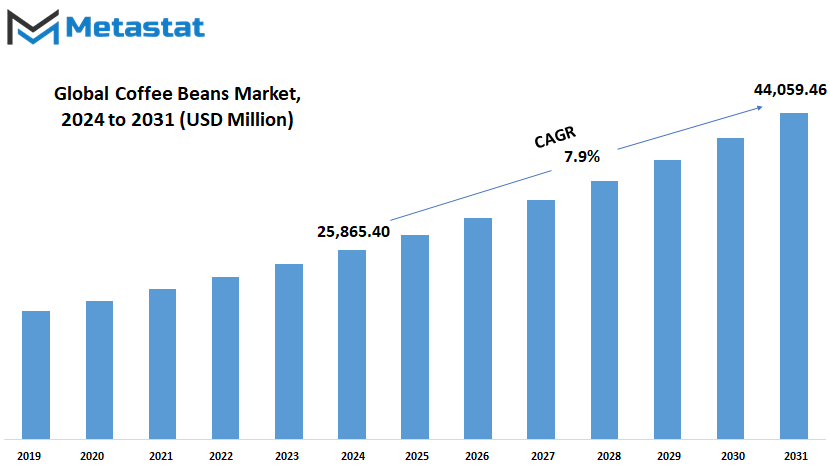
GROWTH FACTORS
The Global Coffee Beans market has witnessed significant growth in recent times, driven by some primary factors that reflect the evolution in the consumption of coffee. These include the growing desire to have specialty coffee. Today’s consumers are becoming ever so choosy about their coffees, not just flavors, but also about origin and brewing methods, increasing demand for quality beans. Specialty coffee is one of those types of beverages which are usually famous for its flavor and the way of manufacturing it. Specialty coffee is consumed by a wider population, which consumes coffee not only for a caffeine kick but also for a good experience of coffee.
Therefore, premium coffee options will influence the market in the coming times. More and more coffee shops and retailers are offering their premium blends to meet consumers' demands. Another major reason behind the growth of the Global Coffee Beans market is the increasing acceptance of the culture of coffee in every part of the world.
Beyond a drink, coffee has come to blend into all manners of everyday social lifestyles, work cycles, and routines. Actually, coffee shops have come to become points where people congregate in order to conduct their business or simply socialize. This sort of culture has helped institutionalize coffee across various types of people.
The emerging café culture in cities helps the popularity of coffee become an integral to everyday life of people in society. Increasing this cultural spread would add pressure to increasing the demand for coffee beans in the near future. Though demand in the market might keep rising as culture influences this pattern of life for all sections, it might have to confront various other factors too. One of the most immediate concerns is the effect of global warming on coffee production.
Coffee crops are extremely susceptible to changes in temperature and precipitation, and erratic weather may result in lower yields and beans of lesser quality. More significantly, areas that are noted for a long history of coffee production may face declines in productivity, so that the supply will be reduced, and hence the prices will be raised. The same might draw the coffee market growth cycle, leading to fluctuations in prices within the coffee market afterwards. Another potential barrier is that of price fluctuations in the coffee market.
The price for coffee beans has historically experienced strong swings, and it's driven by factors such as crop yields, transportation costs, and global economic conditions. As these factors are changing, they will continue to influence the stability of the coffee market, which might reflect on consumer prices and demand. Conversely, the growth into emergent markets gives the world market of coffee an immense future prospect. Simply put, demand for coffee rises in any country whose disposable incomes and cultures of coffee are growing rapidly.
The more that customers within these regions make coffee drinking part of their lifestyle, this will push consumption across the world for Global Coffee Beans which would be a possible solution for offsetting such issues. Although the road ahead is not smooth, the future of the Global Coffee Beans market seems quite promising with continuous growth owing to the increasing demand from the consumers and new opportunities emerging in the developing markets
MARKET SEGMENTATION
By Product Type
In terms of product type, the global coffee beans market can be broadly classified into three main varieties: Arabica, Robusta, and other types. Every coffee bean is different in quality, and it is popular because of consumer preferences in various regions. The growth of these beans takes place mainly in cooler climates and at high altitudes in regions such as Latin America. The Arabica coffee beans are costlier but consumers will pay a bit more as they offer subtle flavors to be relished by the connoisseur. It's going to dominate in the specialty coffee area, more specifically for the cafes. In the global market, this should take it upward. It is also used for strong pungent flavor, besides it carries more caffeine content.
These beans are usually grown in low-altitude areas with warmer climates, which makes them easier to cultivate than Arabica beans. The main reason why this type of bean is also used in instant coffee and cheaper coffee products is its price. Even though Robusta is not very popular among coffee connoisseurs, its demand should increase because it is suited to mass-market coffee production. This part of the global coffee beans market should see strong growth in those regions where instant coffee is preferred or where cheap coffee products are in demand. Other varieties are less known, such as Liberica and Excelsa. Although neither of these varieties has wide acceptance like Arabica or Robusta, they still play an important role in adding to the variety of coffee products available.
In recent years, some of these alternative types of coffee have begun to gain more attention as there are various kinds that offer different tastes that are seen and understood. Expanding into a global coffee bean market will likely push one into looking for a host of new and exotic varieties that might be up for tasting in future days.
By Roast Type
The global coffee beans market is growing at a very high rate, and the factors responsible for this growth include the rising demand for specialty coffees, growth in coffee culture, and increased demand for sustainable and ethically sourced products. The major segment of the market is divided into coffee beans based on roast type. The major categories in which coffee roasts are divided are Light Roast, Medium Roast, and Dark Roast. Every variety has its distinct characteristics and appeals to other consumer preferences.
Light Roast coffee beans have a mild flavor profile with high acidity. They are generally roasted at a relatively low temperature, allowing the natural flavors of the beans to be maintained. This variety of coffee is becoming highly popular with consumers who seek a taste that is richer, fruity, and a higher concentration of caffeine among others. Because of this dynamic market, consumers are most likely to see light roast coffee consumption increase significantly in the future, a consequence of changing taste to fresher and more flavorful tastes. Medium Roast coffee is a balance of acidity and flavor, meaning that this coffee has an excellent taste that is smooth and round.
This makes them a favorite for those who are looking for a traditional coffee flavor. The medium roast segment of the global coffee beans market is expected to grow steadily in the future as it appeals to a wide range of consumers, from casual coffee drinkers to those with a more refined palate. As being of versatile nature, medium roast coffee is perfect to brew. This includes drip coffee, espresso, and French press. Dark Roast: It will be roasted for a bit longer time. Hence the flavor would be strong with smoky flavor sometimes may taste bitter.
As consumer demand continues to increase in demand for stronger flavors and intensity in their cup of coffee, dark roasted beans will remain one of the highly sought markets. Moreover, with the increasing trends of cold brew coffee, where dark roast beans tend to be used because of their smooth and robust taste, there will be a continued increase in demand for dark roast. In the near future, the market is supposed to diversify globally as far as coffee beans are concerned. Consumers' needs, bound to change accordingly, are sure to bring it about. A greater demand for sustainability and ethical sources will oblige companies to source these beans under open and fair conditions. Popularity of roast types is increasing: The same category appeals to a different segment of customers.
By Distribution Channel
Notably, the Global Coffee Beans market is experiencing significant changes due to a combination of changing consumer preferences and the emergence of new distribution channels. Ahead, one of the key changes in this market has been the expansion of distribution channels both in the physical and online realms. Through these channels, coffee beans are reaching consumers across the globe. As demand for high-quality coffee beans continues to rise, it is pertinent to understand how these channels will evolve and shape the market in the years ahead.
Conventional retailing has taken place through supermarkets, coffee shops, and local stores for a long time now. Although there is an evident change in the direction toward online sales, offline sales are one of the more important constituents of the coffee beans' supply chain. Looking toward the future, offline stores will be critical locations through which customers want to physically see, touch, or even smell before buying a product. In addition, as more consumers become interested in specialty coffee beans, brick-and-mortar locations may increase their offerings of unique blends or single-origin coffees to meet consumer demand.
The online channel is also growing rapidly because of the increased convenience to the consumer. E-commerce platforms have really made it easier for coffee lovers to order from the comfort of their homes a great number of varieties of coffee beans. Online shopping trends are going to get more and more stronger in the future because more people would become habitual to buying foods and beverages online. With the emergence of subscription services and direct-to-consumer models, there is no doubt that the online shopping model will gain momentum and continue to soar, providing both global and local coffee bean suppliers with a wide reach.
Looking into the future, there is a high probability of seeing the lines between channels fade even further, wherein online and offline channels meet halfway. This may lead to online platforms offering a choice of in-store pickup and brick-and-mortar expanding their online presence towards increasing their customer base, reaching more customers. To answer the expectations of greater convenience and variety, there is a shift in both distribution channels.
It, therefore, means that the Global Coffee Beans market, especially its prospects through the channel of distribution, is promising. The future will be one full of excitement and growth, with online shopping taking up the center stage as well as offline retail slowly catching up with the pace set by changing consumer behavior. Offline and online channels together, therefore, will have an essential role to continue growing the coffee bean market to offer more choices with easier access to consumers in a globalized world.
By Application
The Global Coffee Beans market is expansive and continues to grow steadily due to the growing demand for coffee across the globe. Coffee, being one of the most popular beverages in the world, is consumed by millions of people around the globe. However, beyond food and beverages, the Global Coffee Beans market caters to a wide array of applications that can be used to serve different industries such as cosmetics and pharmaceuticals. As we look into the future, the varied use of coffee beans in the mentioned sectors will likely go a long way in making it grow and innovate further.
The food and beverages sector is the largest segment in the Global Coffee Beans market. Coffee beans are widely used to make coffee for the consumption of people across the world in various forms. Whether in cafes, restaurants, or at home, coffee is an essential part of daily life for many. As consumer preferences continue to evolve, there will likely be an increase in demand for specialty coffee blends, organic coffee, and environmental friendly products. This will push coffee producers to meet the growing needs of consumers who are more conscious of the origins and quality of the products they consume. In addition, ready-to-drink coffee beverages are also expected to gain popularity, which will further drive the market.
Cosmetics is another key player in the Global Coffee Beans market. Coffee beans contain antioxidants that make them popular in many skincare products. They reduce inflammation, improve skin texture, and provide a natural exfoliation. Coming years are expected to witness increased demand for coffee-infused beauty and personal care products. Consumers are now in pursuit of natural and effective skincare solutions. Sustainable beauty trends are rising, and it will be increasingly demanded by the eco-conscious consumers to obtain coffee beans from fair-trade or organic farms.
One such area that might not have that level of familiarity with its link to coffee beans, yet is likely to increase further, is pharmaceuticals. Coffee beans contain caffeine that has known stimulating effects. It would be found helpful in making various health-enhancing medications and health products. Future researches may unveil new health effects attributed to coffee beans. Thus, pharmaceutical products shall become a byproduct. With the growing interest in natural and plant-based alternatives to synthetic medications, coffee beans may find their place in many new health solutions.
Looking forward, the Global Coffee Beans market will diversify further, driven by the ever-expanding applications of coffee beans. From food and beverages to cosmetics and pharmaceuticals, coffee beans will remain a crucial commodity in various industries, contributing to global economic growth.
|
Forecast Period |
2024-2031 |
|
Market Size in 2024 |
$25,865.40 million |
|
Market Size by 2031 |
$44,059.46 Million |
|
Growth Rate from 2024 to 2031 |
7.9% |
|
Base Year |
2022 |
|
Regions Covered |
North America, Europe, Asia-Pacific Green, South America, Middle East & Africa |
REGIONAL ANALYSIS
There are various factors, specific to a given region, influencing the global Coffee Beans market. This creates a different type of landscape in each region; this will continue changing in time. Regional consumption, production, and future consumption pattern differences will, over time, determine regional characteristics, which will become dominant drivers of the coffee beans market.
In North America, the largest consumer of coffee is the United States, which is among the biggest consumers of coffee worldwide. Demand for specialty coffees and the rise of coffee shops will probably be a growth driver in this region. Canada and Mexico are also part of this trend, with increased interest in premium coffee and local cafes. North American consumers will become more conscious of the sustainability and origin of their coffee, thus increasing demand for ethically sourced and organic coffee beans. The future of the market in this region will likely be shaped by advancements in coffee technology and changing consumer preferences towards more personalized coffee experiences.
In Europe, a coffee culture is well-entrenched. Italy and Germany are classic countries for their traditional style of coffee consumption. Market demand in Europe is therefore likely to be influenced more and more by the quality of beans, which would be ethically sourced. With consumers in the UK and France interested in looking into different types of coffee, there will be higher demand for various varieties and roasting techniques. The European market is going to grow because of a trend toward sustainable practices. Fair trade coffee and green packaging solutions are the major contributors to this growth.
Asia-Pacific is a very dynamic and fast-growing market for coffee beans. Countries such as China and Japan have emerged as the leading consumers in the global market for coffee. Younger generations in these countries are more and more turning toward coffee. India and South Korea, too, are growing, especially in urban areas as the café culture becomes an increasingly popular phenomenon. Higher disposable incomes and changing lifestyles ensure that more people in the Asia-Pacific region will add coffee to their daily drinking habits. This will be an area that has much innovation and where coffee products will be modified to adapt to the taste of this region.
South America is still one of the most important regions in the coffee beans market because it is one of the largest coffee producers in the world. Brazil, which is the world's largest coffee producer, will be a significant player in the global supply of coffee beans. The increasing demand for Brazilian coffee in the international market and efforts to improve the quality of coffee will determine the future of this region in the global market.
Coffee consumption in the Middle East and Africa region is expected to grow with the GCC countries and South Africa, as coffee culture is becoming increasingly prominent there. The rich history the region has had with coffee, especially in countries such as Ethiopia, will give both local consumption and exporting opportunities. Changes in consumers' tastes, as well as an increase in attention to specialty coffees, will influence growth in the coffee market for this area.
In the future, global markets in Coffee Beans will still continue to be driven by regional supply and demand dynamics, and by how consumers and market conditions evolve and shift around the world.
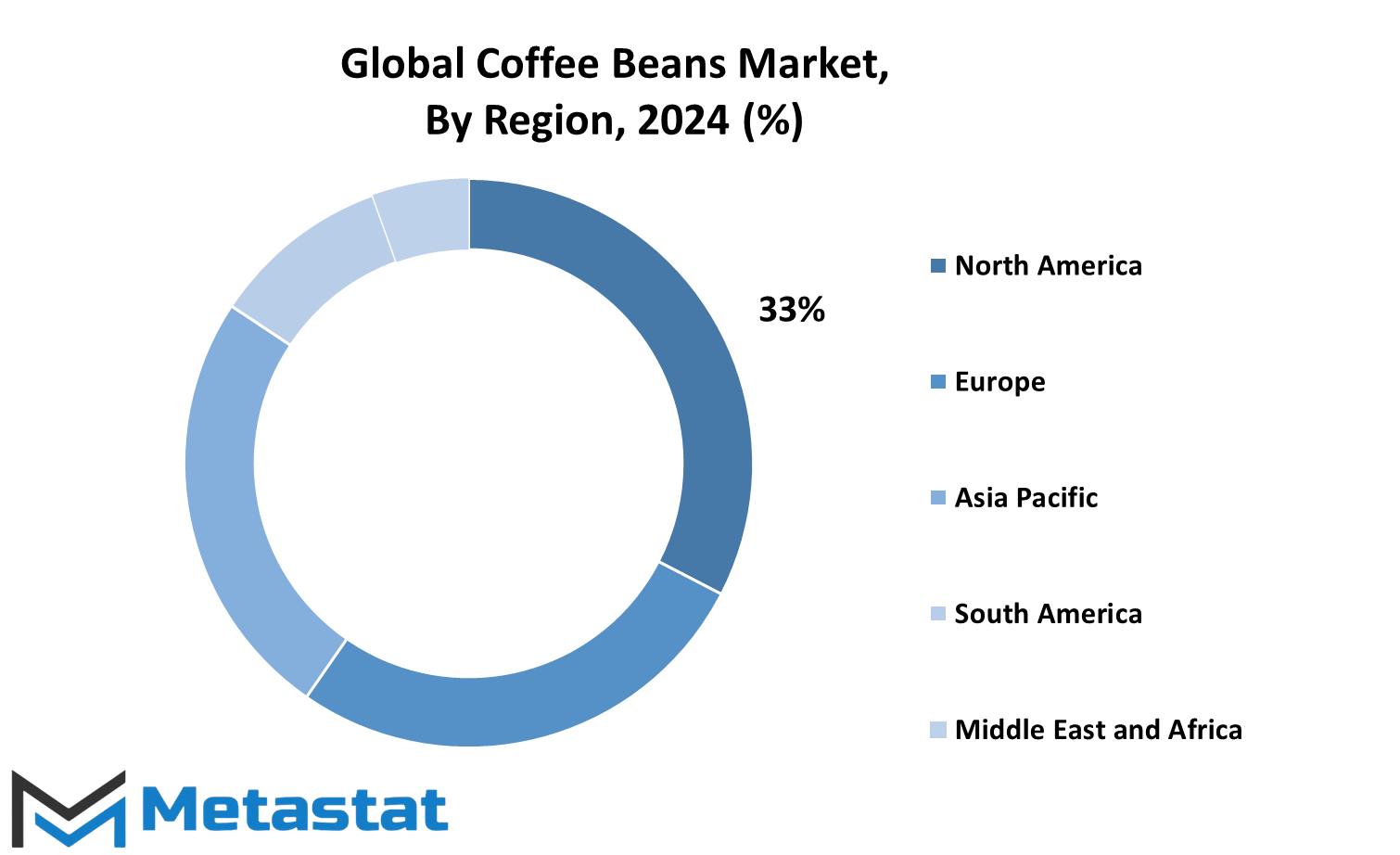
COMPETITIVE PLAYERS
This industry of global coffee beans has severe competition, as it features quite a number of companies and other key players vying to become the biggest in their business. Among them include such big brands like Nestlé, J.M. Smucker Company, Starbucks Coffee Company, Lavazza, and Dunkin' Brands Group. Brands which have been key because they are strong at consumer market and innovative with product. They also distribute extensively through different networks.
For example, Nestle is one of the largest in the coffee beans market and boasts an extensive portfolio of coffee products. Its widespread reach around the world lets it dominate many regions through offering a wide range of coffee options to consumers. The J.M. Smucker Company, for example, with its coffee brands, such as Folgers, is a strong player within North America. Starbucks Coffee Company is another giant in the coffee shop segment, which also plays a significant role in the market by offering high-quality coffee beans and a variety of brews to customers worldwide.
The company, Lavazza, was started from Italy. Over the years, it has acquired a reputation of premium coffee beans and increasing its share in the market across the globe. With quality and sustainability, it remains at the forefront as a leader in the market for coffee beans. Coffee Beanery and Tchibo are some of the big players which focus on quality coffee, offering a range of blends to cater to the consumer's preferences.
Kicking Horse Whole Beans and Dunkin' Brands Group are serving consumers who prefer other brewing methods and tastes, whereas Caribou Coffee and illycaffè focus on premium coffee experiences and sustainability. Other companies like Peet's Coffee and Melitta Group continue to compete by offering specialty and everyday coffee options for consumers across various regions.
In addition to the above, Eight O'Clock Coffee, Death Wish Coffee, and Farmer Bros. Co. indicate a growing demand for robust, full-bodied flavors that appeal to niches. Strauss Group is also one of the strongest players in the market with its strength in Israel and the Middle East. The same applies to La Colombe Corsica Blend and Massimo Zanetti Beverage, as it carves out niches through its unique blends and ethical sourcing practices.
There will be a trend of becoming increasingly healthy and specialty in their offerings from brands like Bulletproof and Stumptown Coffee Roasters. Based on the ongoing change of consumer preferences, companies should continue to innovate with more traditional tastes as well as demand for organic and sustainable coffee beans.
In the future, competition in the global coffee beans market will continue to increase as more entrants into the industry compete, while incumbent firms innovate to stay abreast with consumers' expectations. Sustainability and ethical sourcing will shape the competitive landscape, especially since consumers are becoming more environmentally and socially conscious. Brands that can balance quality, sustainability and consumer's demand for diversity effectively will succeed in such changing markets.
Coffee Beans Market Key Segments:
By Product Type
- Arabica
- Robusta
- Other
By Roast Type
- Light Roast
- Medium Roast
- Dark Roast
By Distribution Channel
- Offline
- Online
By Application
- Food & Beverages
- Cosmetics
- Pharmaceuticals
Key Global Coffee Beans Industry Players
- Nestlé
- J.M. Smucker Company
- Starbucks Coffee Company
- Lavazza
- Coffee Beanery
- Tchibo
- Kicking Horse Whole Beans
- Dunkin’ Brands Group
- Caribou Coffee
- illycaffè
- Peet’s Coffee
- Melitta Group
- Eight O’Clock Coffee
- Death Wish Coffee
- Farmer Bros. Co.
- Strauss Group
- La Colombe Corsica Blend
- Massimo Zanetti Beverage
- Bulletproof
- Stumptown Coffee Roasters
WHAT REPORT PROVIDES
- Full in-depth analysis of the parent Industry
- Important changes in market and its dynamics
- Segmentation details of the market
- Former, on-going, and projected market analysis in terms of volume and value
- Assessment of niche industry developments
- Market share analysis
- Key strategies of major players
- Emerging segments and regional growth potential



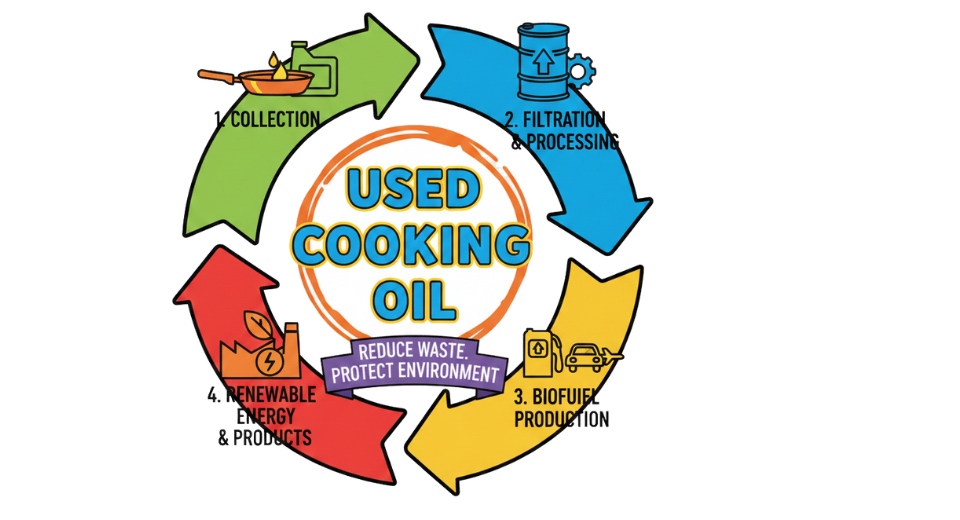
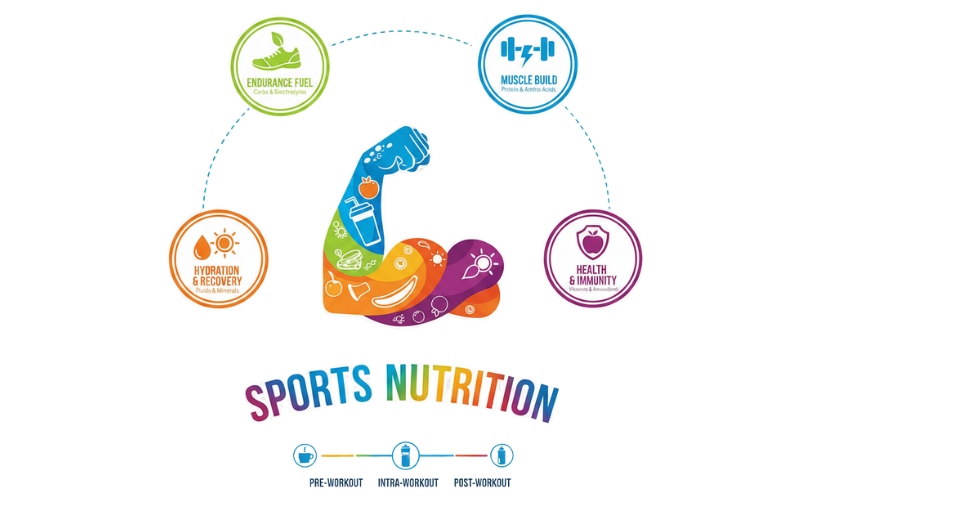
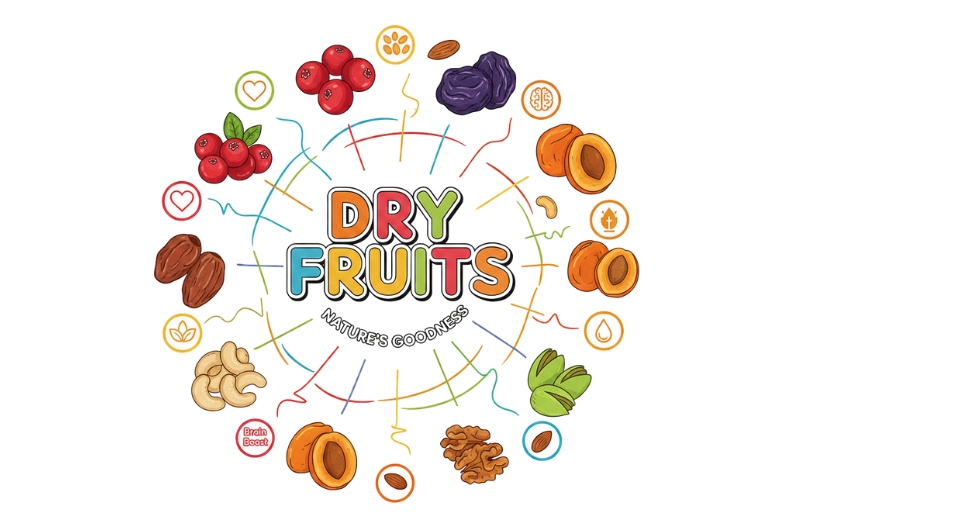


 US: +1 3023308252
US: +1 3023308252






